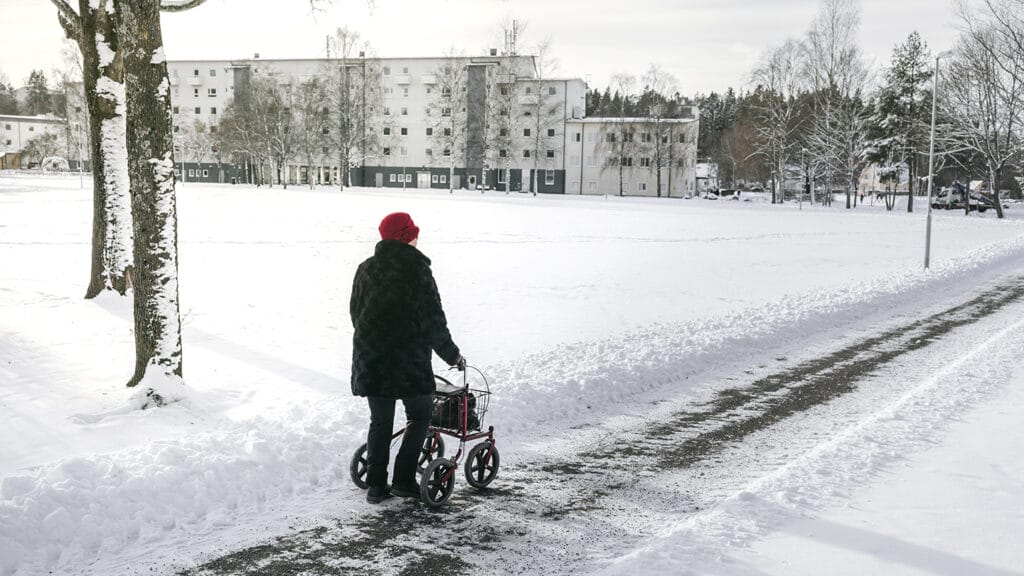by Kimberly Bonvissuto

The family of a woman with dementia who wandered outside of her memory care unit and froze to death is suing the community for negligence in failing to prevent her death.
News of the lawsuit comes as the assisted living industry is facing increased examination nationwide over safety, staffing and pricing — including a US Senate Special Committee on Aging hearing today and an ongoing review by the committee featuring three of the country’s largest senior living community operators.
The hearing and review are being conducted in response to recent articles in The Washington Post, which in December reported on the deaths of several residents who had eloped from communities, as well as November articles by the New York Times and KFF Health News, which covered an industry pricing structure that adds fees on top of basic charges to cover additional services, as well as rate increases and the for-profit status of most providers.
The lawsuit involves Lynne Stewart, 77, who was found outside of Courtyard Estates at Hawthorne Crossing in Bondurant, IA, on Jan. 21, 2022. An investigation uncovered that Stewart, who lived in the memory care unit, wandered outside of the building at 9:30 p.m. the previous night, but her absence went unnoticed for more than eight hours despite multiple alarm system warnings.
The complaint, filed Jan. 15 in Iowa District Court in Polk County, accuses AbiliT Holdings LLC (doing business as Courtyard Estates) and Jaybird Senior Living of gross negligence, reckless disregard for safety and negligent hiring, retention and supervision of employees, leading to the wrongful death of Stewart. The suit was filed by the estates of Stewart and her daughter, Sara Gwinn, who died in November.
Stewart — who had diagnoses of Alzheimer’s disease, major depressive
disorder and anxiety disorder — moved into the assisted living community
on March 30, 2019, relocating to the memory care unit on Aug. 23,
2019.
According to the complaint, on Jan. 20, 2022, Stewart wandered from her room, triggering the first door alarm at 4:23 p.m. The personal door alarm on Stewart’s apartment was installed with double-sided tape rather than hardware, resulting in multiple false alarms that desensitized staff members to those alarms, the lawsuit alleges.
After wandering the memory care unit hallways, Stewart made her way outside of the community at 9:34 p.m., triggering an outside door alarm that was not loud enough to be heard in the community common area where staff members were working, according to the complaint. Alerts also did not appear on iPads due to malfunctions previously known to the defendants, the lawsuit maintains. Alerts did appear on office computers, but no staff members were assigned to monitor those computers during the 10 p.m. to 6 a.m. shift, according to the complaint.
According to a state investigation, the community’s executive director received a series of text message alerts when door alarms were triggered, but she slept through those alerts. The on-call registered nurse reportedly received a similar series of alerts but failed to respond, telling investigators that mechanical defects caused the alarms in Stewart’s room to trigger “constantly.”
Stewart was found outside the exit door to the community at 6:10 a.m. the next day in temperatures that dipped below freezing.
The complaint alleges that the defendants knew that Stewart had a tendency to wander and had memory issues, episodes of depression and anxiety, sundowning and a routine of packing up her belongings and attempting to leave the community in the evenings. According to her service plan, Stewart required 24-hour supervision in the memory care unit, an ankle monitor/alarm, a personal apartment door alarm and hourly visual safety checks.
Workers face suits
Catherine Forkpa, a certified nursing assistant in charge of the memory care unit on the night Stewart died, was charged with murder, later pleading guilty to dependent abuse. Sally Daniels, a former resident assistant in charge of the assisted living unit, was later fired but filed a racial discrimination lawsuit alleging that the company used Black employees as scapegoats in Stewart’s death, according to the Iowa Capital Dispatch.
The state cited the community for numerous safety breaches and fined it $10,000. The community also was cited for not providing Forkpa with required dementia training during her first month on the job.
Courtyard Estates and Jaybird Senior Living had not responded to a request for comment from McKnight’s Senior Living as of the production deadline.
Full Article & Source:
Provider faces lawsuit over resident’s freezing death as assisted living industry finds itself on the hot seat

No comments:
Post a Comment